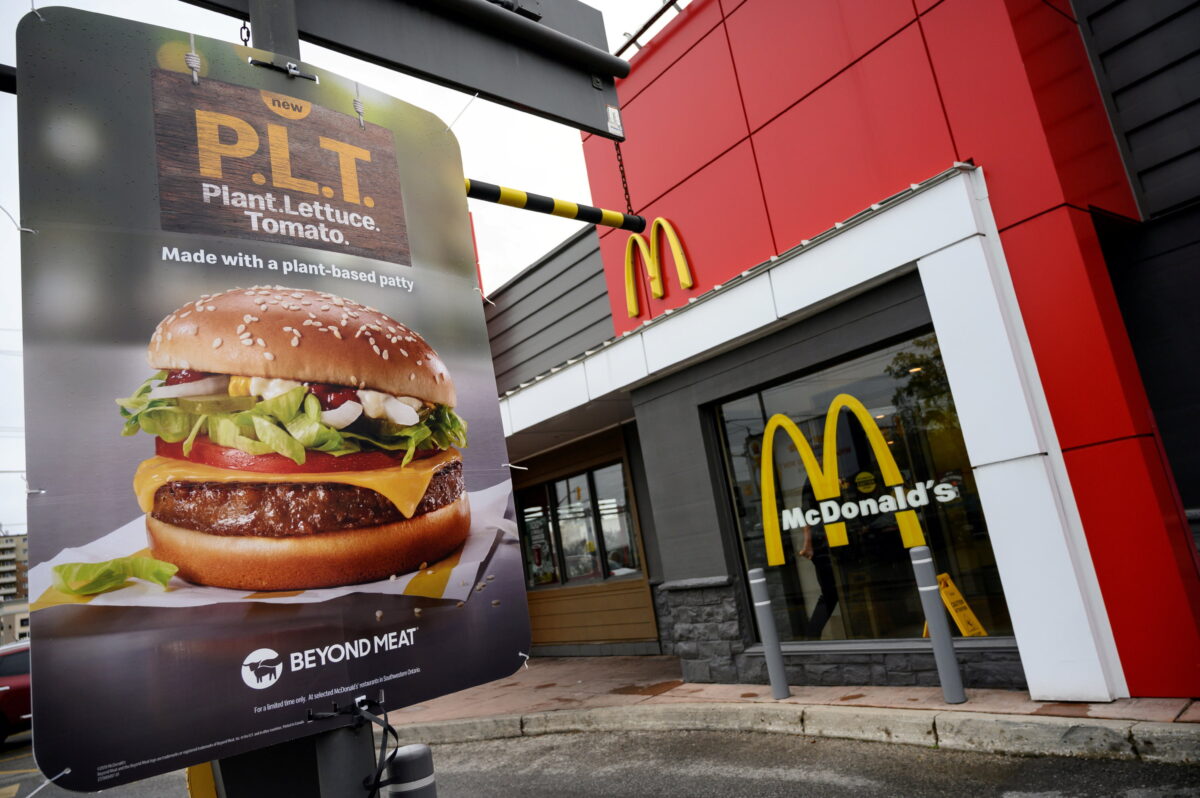Why Freedom Depends More Than Ever on Our Health and Fitness
CommentaryA nation is only as healthy as the people—the individuals—of which it is comprised. If we recognize this simple, obvious, fact, what are we to say about the health of our nations today? Look around at your fellow men, women, and children. How have we reached this point? And who, ultimately, benefits? It’s an undeniable fact that for the last 100 years, ordinary people throughout the developed world have been getting sicker and sicker. Why? Our diet, which has changed profoundly, is an obvious culprit. The negative effects of the new industrial diet were evident from the start. The great pioneering dentist Weston A. Price charted the emerging effects as part of a globe-trotting adventure that became the seminal book “Nutrition and Physical Degeneration” (1939). In an effort to make sense of the deteriorating health of the patients, especially children, at his dental practice in Ohio, Price intuited that it was what they were eating that was to blame. This led him to seek out traditional societies and groups around the world who did not yet follow Western-style industrial diets, in the hope of discovering what humans really should be eating in order to flourish and grow to their full potential. Price found that, despite the regional variation, traditional peoples that displayed optimal health all built their diets around nutrient-dense animal foods: organ meat, especially liver; fatty cuts of meat; blood products; milk and cheese; eggs; seafood; and fat products like butter and lard. This is precisely the kind of diet we, in the West, were quickly moving away from in Price’s day. Raw chicken eggs. (GooDween123/iStock) Now, such a diet is but a distant memory, a speck in our civilization’s rear-view mirror. Today we build our diet around foods our ancestors would have eaten very little of, or wouldn’t even have eaten at all. That means, especially, refined carbohydrates and toxic plant-based fats—vegetable and seed oils—that less than a hundred years ago were considered fit only to be used as engine lubricant (really—look it up). And what has happened? We grow fatter and unhappier, afflicted by rising diabetes, cancer, gut dysfunction, infertility, immune diseases, depression, and other mental health disorders. At the same time, we suffer from increased exposure to a wide variety of harmful chemicals. These chemicals, which are essential to many of today’s most important industrial and agricultural processes, including the manufacture of plastics, wreak havoc on our hormonal systems, drive infertility and encourage our bodies to put on weight. The recent Tucker Carlson documentary, “The End of Men,” in which I played a starring role, has drawn much-needed attention to these substances, which are compounding the effects of widespread poor nutrition. Indeed, according to one reproductive health expert, if current trends in sperm counts continue, we may, as a species, cease to be able to reproduce naturally within the next 30 years. This is an existential problem. File photo showing plastic bags and other rubbish collected from the waters of Manila Bay, Philippines, on July 3, 2014. (Jay Directo/AFP/Getty Images) So how has this happened? Food has been recognized as a tool of social control since at least the days of Plato. In the Republic, written nearly 2,500 years ago, Plato’s Socrates states that a bland vegetarian diet would help the workers of his ideal society to keep their tempers in check and accept their humble lot. Throughout the twentieth century, social planners, philosophers, and eugenicists advocated modifying the diets of ordinary people, including adding chemicals such as sterilants to the water, the better to control them. The truth is, though, that the weakening and sickening of the general populace has proceeded in a haphazard manner, and is as much the product of chance as planning. The triumph of the lipid-heart hypothesis, for instance, which justifies abandoning animal fats for vegetable and seed oils, owes perhaps as much to the fact that President Dwight Eisenhower had a heart attack in the Oval Office as it does to faulty science, personal rivalries, and the commercial desire to turn industrial waste products into profitable “healthy” commodities. Industrialization, urbanization, and population growth are also clearly to blame for the massive changes to diet and lifestyle, and were far from planned. Bottles of canola oil on the shelf of a grocery store in Beijing, China, on March 6, 2019. (Mark Schiefelbein/AP Photo) Even so, the beneficiaries are still those we might expect if indeed this had all been a grand plan or conspiracy. The corporations: they sell us the perverted food and poison the environment. The medical regime: they offer expensive ad-hoc treatments, instead of addressing the root causes, and deliberately mislead about the efficacy and side effects of their “medicines.” And, of course, there’s the government, which governs a docile, dependent popula

Commentary
A nation is only as healthy as the people—the individuals—of which it is comprised. If we recognize this simple, obvious, fact, what are we to say about the health of our nations today? Look around at your fellow men, women, and children. How have we reached this point? And who, ultimately, benefits?
It’s an undeniable fact that for the last 100 years, ordinary people throughout the developed world have been getting sicker and sicker. Why? Our diet, which has changed profoundly, is an obvious culprit. The negative effects of the new industrial diet were evident from the start. The great pioneering dentist Weston A. Price charted the emerging effects as part of a globe-trotting adventure that became the seminal book “Nutrition and Physical Degeneration” (1939). In an effort to make sense of the deteriorating health of the patients, especially children, at his dental practice in Ohio, Price intuited that it was what they were eating that was to blame. This led him to seek out traditional societies and groups around the world who did not yet follow Western-style industrial diets, in the hope of discovering what humans really should be eating in order to flourish and grow to their full potential.
Price found that, despite the regional variation, traditional peoples that displayed optimal health all built their diets around nutrient-dense animal foods: organ meat, especially liver; fatty cuts of meat; blood products; milk and cheese; eggs; seafood; and fat products like butter and lard. This is precisely the kind of diet we, in the West, were quickly moving away from in Price’s day.

Now, such a diet is but a distant memory, a speck in our civilization’s rear-view mirror. Today we build our diet around foods our ancestors would have eaten very little of, or wouldn’t even have eaten at all. That means, especially, refined carbohydrates and toxic plant-based fats—vegetable and seed oils—that less than a hundred years ago were considered fit only to be used as engine lubricant (really—look it up). And what has happened? We grow fatter and unhappier, afflicted by rising diabetes, cancer, gut dysfunction, infertility, immune diseases, depression, and other mental health disorders.
At the same time, we suffer from increased exposure to a wide variety of harmful chemicals. These chemicals, which are essential to many of today’s most important industrial and agricultural processes, including the manufacture of plastics, wreak havoc on our hormonal systems, drive infertility and encourage our bodies to put on weight. The recent Tucker Carlson documentary, “The End of Men,” in which I played a starring role, has drawn much-needed attention to these substances, which are compounding the effects of widespread poor nutrition. Indeed, according to one reproductive health expert, if current trends in sperm counts continue, we may, as a species, cease to be able to reproduce naturally within the next 30 years. This is an existential problem.

So how has this happened? Food has been recognized as a tool of social control since at least the days of Plato. In the Republic, written nearly 2,500 years ago, Plato’s Socrates states that a bland vegetarian diet would help the workers of his ideal society to keep their tempers in check and accept their humble lot. Throughout the twentieth century, social planners, philosophers, and eugenicists advocated modifying the diets of ordinary people, including adding chemicals such as sterilants to the water, the better to control them.
The truth is, though, that the weakening and sickening of the general populace has proceeded in a haphazard manner, and is as much the product of chance as planning. The triumph of the lipid-heart hypothesis, for instance, which justifies abandoning animal fats for vegetable and seed oils, owes perhaps as much to the fact that President Dwight Eisenhower had a heart attack in the Oval Office as it does to faulty science, personal rivalries, and the commercial desire to turn industrial waste products into profitable “healthy” commodities. Industrialization, urbanization, and population growth are also clearly to blame for the massive changes to diet and lifestyle, and were far from planned.

Even so, the beneficiaries are still those we might expect if indeed this had all been a grand plan or conspiracy. The corporations: they sell us the perverted food and poison the environment. The medical regime: they offer expensive ad-hoc treatments, instead of addressing the root causes, and deliberately mislead about the efficacy and side effects of their “medicines.” And, of course, there’s the government, which governs a docile, dependent population, rather than a mass of healthy, motivated, independent people. This is why a movement for health and fitness cannot be apolitical today: its targets must be precisely these organizations and structures that benefit so heavily from maintaining us in physical and mental weakness.
Our health and freedom also face a new threat, one that is arguably even greater than any faced before: the Great Reset. Despite the copious window dressing—“we need to make the world a fairer place and also save it from climate change”—the reality of the Great Reset is a brutal consolidation of elite power. Corporations, hand-in-glove with the government, will be given total control over life, including the way we eat.

Like the great social transformation of the Neolithic, when man went from hunter-gatherer to sedentary farmer, the Great Reset is also built on a fundamental transformation of food production and consumption. A global plant-based diet, enforced in all likelihood by means of a carbon-credit system, will complete our alienation from the life-giving foods our ancestors thrived upon. What’s more, the production of enough plant food to feed a global population of 10 billion will require a massive intensification of the worst chemical-based farming practices in use today, as well as the near-universal adoption of genetically modified organisms, with the potential for dire unforeseen environmental and health consequences. We can rest assured, though, that our leaders will continue to eat the fine organic foods they are accustomed to today, including those animal products that will be the rest of us will be denied.

The only way to resist the globalism of the Great Reset is by strengthening individual nations, and that, as I say, means building the strength of their citizens as much as electing the right politicians. We need to return to local food systems that prioritize the needs and well-being of individuals, not mega-corporations and the corrupt politicians in their pockets. This is about so much more than just looking or feeling better: our very freedom hangs in the balance.
Views expressed in this article are the opinions of the author and do not necessarily reflect the views of The Epoch Times.













